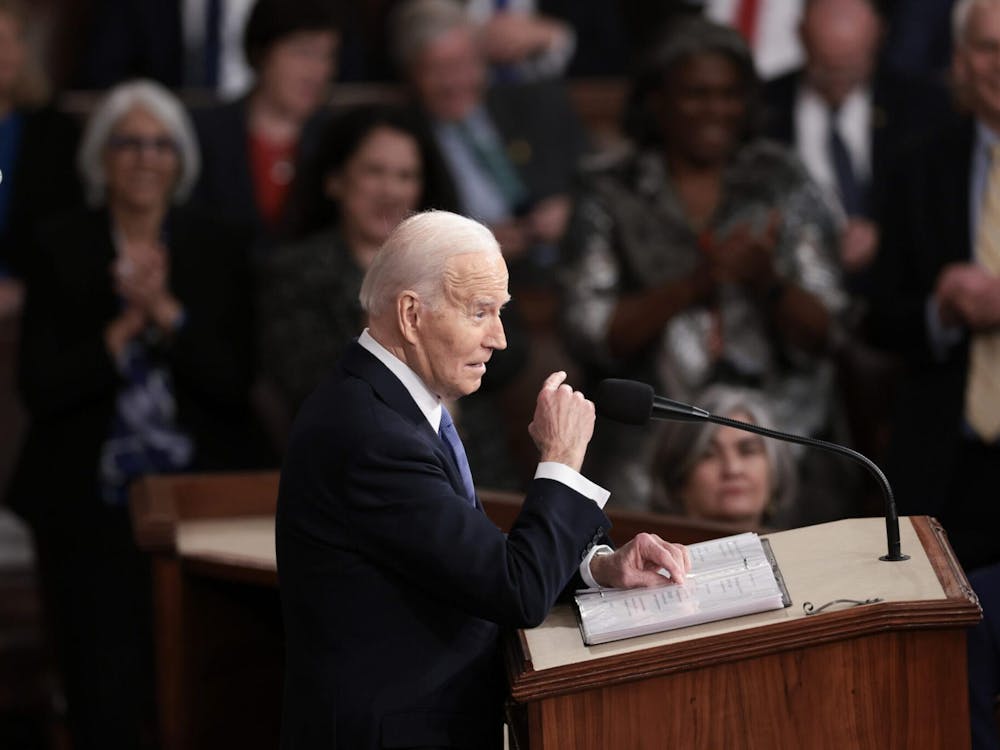With the Nov. 6 election quickly approaching, ads are heating up the race.
Today the Democratic Senatorial Campaign Committee will release its third ad against Republican candidate Richard Mourdock.
The political ad highlights Mourdock's plan to cut $5 billion in federal spending by abolishing the Department of Education.
The DSCC ad explains four effects Mourdock's plan may have: "no federal college loans, no Pell Grants, $5 billion less for Indiana schools and students and tax cut for millionaires."
According to Mourdock's website, "Richard will vote to put an end to wasteful 'earmark' spending and will make balancing the federal budget by cutting spending his top priority."
The DSCC ad cites its source as the U.S. Department of Education; Politico, 4/27/12. When following this source, via the DSCC website, it goes to a Politico.com article titled "Cantor Allied Group Slams Mourdock as Extreme."
This article shows the DSCC has made political attack ads that say exactly what the new commercial is saying.
While Mourdock has said he will vote to dissolve the Department of Education, he has not mentioned the fate of Pell Grants or aid money.
"[Mourdock's plan] sounds similar to a plan that several Republicans have put forward," said Joseph Losco, a Ball State professor of political science. "[It] would clearly adversely affect college students."
Losco said Mourdock's plan, similar to Republican presidential candidate Mitt Romney's plan to cut several departments which remains unclear, would effectively end federal student loans.
Instead, these loans would have to be offered by private vendors who charge more and often require collateral along with co-sign by a parent, Losco said.
Losco said Mourdock's plan, like Republican vice president candidate Paul Ryan's tax plan, is structured around making education a local decision.
"[In K-12 education] the effect will be less drastic on everyday operation, but will hurt curriculum," Losco said. "Instead of having federal standards, a state would be able to choose what it teaches, like teaching creationism or abolishing music and art programs."
Losco cited several programs, such as former President George W. Bush's "No Child Left Behind" and President Barack Obama's "Race to the Top," which are administered by the Department of Education.
"We are just in the middle of trying to revitalize K-12 education through a stem system, in order to strengthen our world competitiveness," Losco said. "Abolishing the [education] department would undermine those initiatives."
Michael Hicks, director of Ball State's Center for Business and Economic Research, approached the issue from a different, fiscally centric position.
"The Department of Education's budget planned for 2012 is $68 billion," Hicks said. "Indiana's share is about $1.54 billion [which is paid by Indiana taxpayers], why would we send this money to Washington just to get it sent back?"
Hicks said the argument about state versus federal spending is a pretty common argument, and his position is the government doesn't need to provide services that are really a state service.
"One hundred percent of instructional expenses [for primary education] are paid by state dollars," Hicks said. "Eliminating the Department of Education would have no direct effect; instead, this would be money Indiana would be able to keep."
An important issue to college students regarding the Board of Education is that of federal aid money, according to studentaidalliance.org, 14 million students and their families received federal student aid, from one or more Department of Education programs, with an average award of around $9,600.
Ball State students have varying reactions when shown the DSCC ad.
"Clearly, I really don't agree with his extreme plan," Faythe Mayer a freshman, said. "[However] the fed[eral government] should stay out of state issues, but at the same time, the state won't have enough money for aid."
Nina Cook, a junior exercise sciences major, said she wouldn't be in college if it weren't for grants and loans.
"There are two issues, how much should we spend on education, which we can and should spend more on, and the second question is how should we do that? Mourdock's plan is one way to answer that question," Hicks said.




